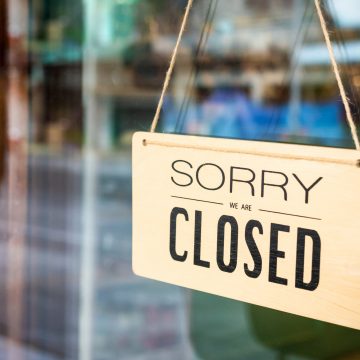Recently, the owner of Polaris Fashion Place, Washington Prime Group, filed for bankruptcy under Chapter 11 of the United States Bankruptcy Code. Washington Prime Group is the owner of over 100 mall properties, including 8 other properties in Ohio. While a bankruptcy filing might seem ominous, due to the nature of Chapter 11 bankruptcies, business will likely continue as usual at Polaris.
What does Chapter 11 Bankruptcy mean?
A case filed under Chapter 11 of the United States Bankruptcy Code is often referred to as a “reorganization bankruptcy” and usually involves a corporation or partnership. Typically, the debtor remains “in possession.” This means it has the powers and duties of a trustee, may continue to operate its business, and may, with court approval, borrow new money. A Chapter 11 case begins when the bankruptcy petition has been filed, either voluntarily by the debtor, or via an involuntary petition which is filed by creditors.
As a debtor in possession (“DIP”), a corporation that files a Chapter 11 bankruptcy continues to hold property in which the creditors have a legal claim under a lien or a security interest. The DIP may still do business using the encumbered assets but must seek approval for any actions that are outside of the scope of its normal business activity. The DIP must also keep accurate financial records, ensure its property and file tax returns. DIP status allows a debtor to continue to run its business while having the power and obligation to do so in the best interest of its creditors.
Can you obtain financing while filing Chapter 11 Bankruptcy?
A DIP may obtain financing in the form of debtor in possession financing (“DIP Financing”). According to section 364 of the Bankruptcy Code, DIP Financing permits the debtor to obtain post-petition or post-bankruptcy filing credit. This gives incentives to both new and existing lenders to make loans, by providing them with special protections. To encourage DIP Lenders to extend unsecured financing to a debtor, the Bankruptcy Code gives DIP Lenders an administrative expense priority. This means that a DIP Lender’s claim, for repayment of the unsecured DIP Financing, will have priority over all other pre-petition unsecured claims. It is important to note, these claims must be paid in full, in order for the debtor to emerge from bankruptcy unless otherwise agreed to by the lender.
Secured financing to a debtor is given super-priority over any and all other administrative expenses of the bankruptcy estate, along with a security interest in any unencumbered assets, or a junior lien on already encumbered assets. A debtor must obtain the approval of the Bankruptcy Court to secure credit under Section 364(c), and the debtor must prove to the court that it could not obtain financing on an unsecured basis.
What happens if you cannot secure financing during bankruptcy?
If a debtor is unable to obtain either unsecured or secured financing, bankruptcy courts also can authorize a debtor to borrow funds on a secured basis through a “priming” DIP loan. This has priority over pre-petition secured creditors as well as a super-priority claim above all other claims. With a priming DIP loan, a lender generally will need a first-priority priming lien on the debtor’s cash, receivables, inventory, and any unencumbered assets and a second lien on any other encumbered property of the debtor’s estate.
What is next for Polaris Fashion Place?
Washington Prime has stated that it has already secured $100 million in DIP financing to keep its operations afloat as its bankruptcy moves forward. Washington Prime has also already reached agreements with creditors that hold 73% of its secured debt. “Washington Prime Group’s guests, retailers and business partners can expect business as usual at all of the company’s retail town centers throughout the proceedings,” the company said. “The company’s financial restructuring will enable WPG to right-size its balance sheet and position the company for success going forward,” said Washington Prime CEO Lou Conforti in a news release.
While not optimal, filing Chapter 11 bankruptcy may provide Washington Prime with its best path forward in today’s unstable retail landscape. If your business is experiencing financial trouble and considering Chapter 11 bankruptcy, please do not hesitate to contact your attorney or a member of our litigation group here at Carlile Patchen & Murphy.





0 Comments